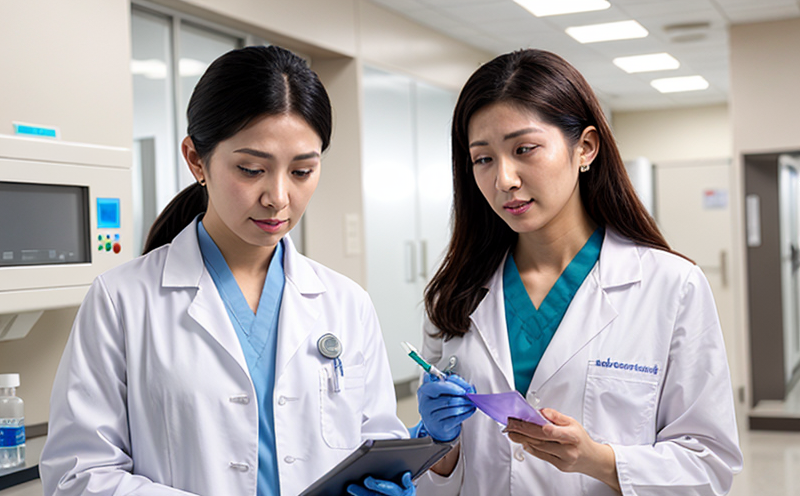EP Host Cell Protein Residue Testing
The European Pharmacopoeia (EP) sets stringent standards for ensuring that biopharmaceuticals and biosimilars are safe, effective, and free from contaminants. One critical aspect of this is the testing for Host Cell Protein (HCP) residues. These proteins can contaminate biopharmaceutical products during production and processing, leading to potential immunogenic responses in patients.
In the context of biologics manufacturing, HCPs are derived from the cells used to produce the active ingredient. For example, if a therapeutic protein is produced using Saccharomyces cerevisiae (yeast), residual yeast proteins could be present in the final product. The presence of these residues can affect drug stability and efficacy, necessitating thorough testing.
The European Pharmacopoeia provides specific guidelines for HCP residue testing under section 2.9.8. This test ensures that pharmaceutical products comply with quality standards, which is essential for maintaining patient safety and regulatory compliance. The method involves the extraction of HCPs from the biopharmaceutical product followed by analysis using advanced chromatographic techniques.
The process begins with sample preparation where the biopharmaceutical substance undergoes various steps to isolate HCPs effectively. Chromatography is then used, typically employing high-performance liquid chromatography (HPLC) or mass spectrometry (MS), to identify and quantify these proteins. The goal is to ensure that any detected residues are below the acceptable limit set by regulatory authorities.
Our laboratory adheres strictly to EP guidelines for HCP testing, ensuring accurate and reliable results. This includes using validated methods such as ELISA or western blotting to confirm the presence of specific HCPs. The entire process is designed to provide comprehensive data that supports robust quality assurance and control measures in biopharmaceutical manufacturing.
The importance of this testing cannot be overstated, especially given the increasing demand for biosimilars and their critical role in healthcare systems worldwide. Ensuring that these products meet stringent regulatory requirements not only protects patients but also enhances trust among stakeholders involved in pharmaceutical development and distribution.
Applied Standards
The European Pharmacopoeia (EP) Chapter 2.9.8 provides detailed guidelines for the testing of Host Cell Protein residues in biopharmaceutical products. This section outlines the methodologies and acceptance criteria that laboratories must follow to ensure compliance with regulatory standards.
The EP specifies that HCP residues should be determined using validated analytical methods capable of detecting even trace amounts of these proteins. Commonly used techniques include liquid chromatography-tandem mass spectrometry (LC-MS/MS), which allows for precise quantification and identification of various HCPs present in the sample.
According to EP 2.9.8, the acceptable limit for total HCP content is typically set at a level that does not exceed 10 μg/g of the finished product. However, this threshold may vary depending on the specific biopharmaceutical being tested and its intended use. Compliance with these limits ensures that no residual proteins from the production process interfere with the efficacy or safety profile of the drug.
Additionally, EP 2.9.8 emphasizes the importance of method validation which includes demonstrating accuracy, precision, linearity, and robustness under defined conditions. These parameters help ensure consistent results across different batches and facilities performing similar tests.
Benefits
- Enhanced Patient Safety: By ensuring that biopharmaceutical products contain minimal HCP residues, we protect patients from potential adverse reactions such as immune responses or allergic symptoms.
- Regulatory Compliance: Adherence to EP standards guarantees that our clients meet all necessary regulatory requirements, facilitating smoother product development and approval processes.
- Quality Assurance: Our rigorous testing procedures provide robust evidence supporting the quality of biopharmaceuticals throughout their lifecycle from development through commercialization.
- Informed Decision Making: Accurate HCP residue data enables stakeholders to make informed decisions regarding formulation adjustments, process improvements, and risk management strategies.





